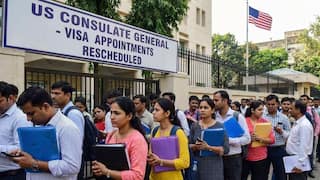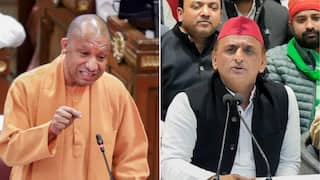Malaysia's Top Court Upholds Ex-PM Najib's 12-Year Jail Sentence In 1MDB Scandal: Report
Najib is accused of embezzling $ 4.5 billion (about Rs 32 thousand crores) from the government investment fund 1Malaysia Development Berhad (1MDB).

New Delhi: Malaysia's top court has upheld the 12-year prison sentence of former prime minister Najib Razak in a corruption case related to embezzlement of the 1Malaysia Development Berhad (1MDB) government investment fund, as reported by news agency AFP. Najib has lost in his final appeal against the conviction i.e. now he will have to serve his jail term at the earliest. With this, for the first time in Malaysia's history, a former prime minister will be jailed.
The country's top court also denied his request for a stay of sentence.
"The defence is so inherently inconsistent and incredible that it has not raised reasonable doubt on the case... We also find that the sentence imposed is not manifestly excessive," Chief Justice Tengku Maimun Tuan Mat said, as quoted by news agency Reuters.
The five-member court team set up to hear the final appeal said they unanimously found that the high court judge had earlier delivered the right verdict and that there was nothing in Najib's appeal to acquit him. The court upheld Najeeb's sentence.
Also Read: BJP Demands Apology After Minister Md Israil Mansuri Enters Vishnupad Temple With Nitish Kumar
"This is unprecedented. Najib will be remembered for his many firsts, the first prime minister to lose a general election, the first to be convicted," said Adib Zalkapli, Director BowerGroupAsia, reported Reuters.
After coming to power in the year 2009, Najib established the 1MDB company. It was a government company owned by the Ministry of Finance. Najib is accused of embezzling $ 4.5 billion (about Rs 32 thousand crores) from the government investment fund 1Malaysia Development Berhad (1MDB).
Meanwhile, on Tuesday, the former Prime Minister demanded the removal of Chief Justice Maimun Tuan Mat, who is leading the five-member team of the court set up for hearing, from the process of hearing the final appeal, saying she may not be impartial.






































